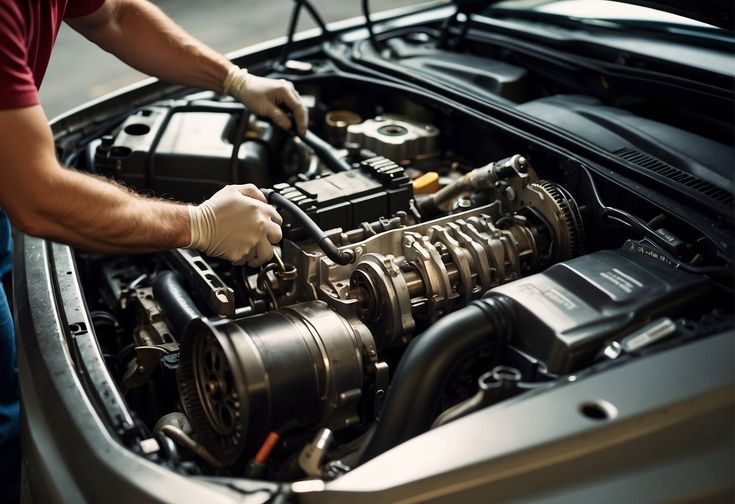Repair instructions
Fix Your Car Right the First Time: Why You Should Always Consult a Repair Manual
- Always consult repair manuals or databases to save time, money, and avoid injuries during DIY car repairs.
- Use online resources as secondary references, supplementing the information found in a repair manual or database.
- Repair manuals also serve as valuable tools for understanding your car and making informed decisions, even if you’re not doing the repairs yourself.

Why It’s Essential to Use the Right Repair Information
If you’re diving into car repairs, it’s critical to have the correct information for your specific vehicle. While it may have been easier to make quick fixes years ago, today’s cars are much more complex. Modern vehicles come equipped with advanced electronics, multiple computers, and intricate systems, so attempting to repair a car without a solid repair manual or database could lead to costly mistakes—and potential safety hazards.
Avoid Wasting Time and Money
One of the biggest mistakes DIYers make is skipping the research phase and diving straight into repairs without proper guidance. This can lead to replacing unnecessary parts or missing the root cause of the problem entirely.
Take a recent example from a friend of mine. He was troubleshooting a Honda with an illuminated check engine light. He replaced the oxygen sensors and catalytic converter, yet the issue persisted. After consulting a repair database, we discovered a simple reprogramming of the car’s PCM (Powertrain Control Module) would resolve the issue. The car was fixed for a fraction of the cost and time wasted on unnecessary parts. Without proper repair information, it’s easy to miss these simple solutions and waste resources.
Prevent Personal Injury
Not using the proper repair guide can also lead to serious safety risks. I’ve seen dangerous situations firsthand—like a customer who removed the strut nut on a vehicle without compressing the coil spring first. The result? A coil spring shot through the fender well, causing extensive damage.
More recently, I witnessed someone trying to handle high-voltage cables in a Toyota Prius without disconnecting the hybrid battery service plug or using the proper protective gear. This could have easily resulted in a life-threatening accident.
Even with experience, working on modern cars can be risky. Without consulting a repair manual, you’re putting yourself and your car at serious risk.
Recommended Repair Resources for DIYers
When I first started working on cars, repair information was only available in massive manuals or on expensive data discs. Now, there are subscription-based databases that bring professional-level factory repair information straight to your fingertips. These resources are invaluable, offering step-by-step guidance, wiring diagrams, technical service bulletins (TSBs), and more.
Online Resources: Use With Caution
While it’s tempting to rely on free information found online, not all of it is accurate or specific to your vehicle. Many websites and videos lack detailed, vehicle-specific advice, and some could send you in the wrong direction entirely. It’s always best to treat online resources as secondary, and rely on a verified repair manual or database for your car’s specific needs.
How Doing Your Homework Helps—Even if You Don’t Work on Your Own Car
Not interested in fixing your own car? No problem! Even if you don’t plan on performing your own repairs, having a repair manual for your car is still a great way to educate yourself. It’s especially helpful for understanding recommended repairs when you visit a mechanic.
Being knowledgeable about your vehicle can help you avoid being overcharged or misled. When you understand what’s involved in a repair, you can have more confidence in your mechanic’s recommendations and ensure you’re getting the service you need—without unnecessary add-ons.
Conclusion
Whether you’re repairing your car yourself or just want to understand your vehicle better, using a proper repair manual or database is essential. By doing your homework, you save time, money, and most importantly—ensure your safety while working on your vehicle. Take the time to research before you start your project, and you’ll be much more confident in the repairs you make, or the decisions you take when you consult a professional mechanic.
